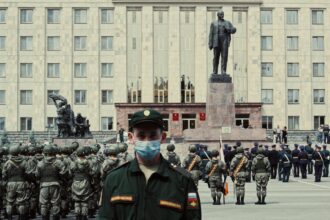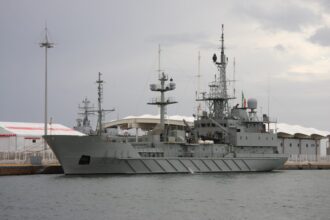The Farewell Dossier, a pivotal document in the annals of Cold War espionage, emerged from a complex interplay of geopolitical tensions and intelligence operations. Its origins can be traced back to the late 1970s when the Soviet Union was perceived as a formidable adversary by Western powers, particularly the United States. The dossier was born out of a need for the CIA to counteract Soviet influence and to gather critical intelligence on their technological advancements.
This period was marked by a race for supremacy in various domains, including military technology and nuclear capabilities, which heightened the urgency for accurate and actionable intelligence. The creation of the Farewell Dossier was not merely a bureaucratic exercise; it was a response to the growing concerns about Soviet espionage and the potential threats posed by their advancements in technology. The CIA sought to exploit vulnerabilities within the Soviet system, and the dossier served as a comprehensive compilation of information that could be used to undermine Soviet operations.
It was a product of meticulous intelligence gathering, involving both human intelligence (HUMINT) and signals intelligence (SIGINT), reflecting the agency’s commitment to staying one step ahead in the intelligence game.
Key Takeaways
- The Farewell Dossier originated from a KGB defector and contained valuable intelligence on Soviet technology and espionage tactics.
- The CIA employed deception tactics, including sabotaging Soviet technology and feeding false information, to mislead the KGB and gain strategic advantage.
- The Farewell Dossier had a significant impact on the Cold War, contributing to the downfall of the Soviet Union and shaping the global balance of power.
- Espionage played a crucial role in international relations during the Cold War, with the Farewell Dossier exemplifying the high stakes and ethical dilemmas involved.
- The declassification of the Farewell Dossier has led to public scrutiny and raised ethical questions about the use of deception in intelligence operations.
The CIA’s Deception Tactics
Deception has long been a cornerstone of intelligence operations, and the CIA’s tactics during the Cold War were no exception. The agency employed a range of strategies designed to mislead adversaries while simultaneously gathering vital information. The Farewell Dossier exemplified these tactics, as it was not just a collection of facts but also a carefully crafted narrative intended to manipulate perceptions.
By presenting selective information, the CIA aimed to create an illusion of superiority over the Soviet Union, thereby bolstering its own position in the global arena. One of the most notable aspects of the CIA’s deception tactics was its ability to create false trails and misinformation campaigns. The agency understood that in the world of espionage, perception often mattered more than reality.
By disseminating misleading information about its capabilities and intentions, the CIA sought to confuse and misdirect Soviet intelligence efforts. The Farewell Dossier played a crucial role in this strategy, as it provided a façade of transparency while concealing deeper operational objectives. This duality allowed the CIA to maintain an upper hand in the intelligence war, showcasing its prowess while simultaneously safeguarding its true capabilities.
The Impact of the Farewell Dossier

The impact of the Farewell Dossier extended far beyond its immediate intelligence value; it reverberated through diplomatic channels and shaped international relations during a critical period in history. The information contained within the dossier not only informed U.S. policy decisions but also influenced how other nations perceived the balance of power between East and West.
By revealing vulnerabilities in Soviet technology and operations, the dossier contributed to a broader narrative that painted the Soviet Union as an increasingly fragile superpower. Moreover, the Farewell Dossier had significant implications for U.S.-Soviet relations. It fueled an atmosphere of mistrust and suspicion, exacerbating existing tensions between the two superpowers.
As both sides engaged in a relentless pursuit of intelligence, the dossier became a symbol of the lengths to which each would go to protect their interests. The revelations contained within it also prompted responses from Soviet intelligence agencies, leading to an escalation in counterintelligence efforts that further complicated diplomatic engagements.
The Cold War Context
| Event | Date | Location |
|---|---|---|
| Yalta Conference | February 4-11, 1945 | Yalta, Crimea |
| Berlin Airlift | June 24, 1948 – May 12, 1949 | Berlin, Germany |
| Korean War | June 25, 1950 – July 27, 1953 | Korean Peninsula |
| Cuban Missile Crisis | October 16-28, 1962 | Cuba |
To fully appreciate the significance of the Farewell Dossier, one must consider the broader context of the Cold War. This era was characterized by ideological conflict, military posturing, and an arms race that defined international relations for decades. The United States and the Soviet Union were locked in a struggle for global dominance, with each side seeking to expand its influence while containing that of its rival.
In this charged atmosphere, intelligence operations became essential tools for both sides, as they sought to gain insights into each other’s capabilities and intentions. The Cold War context also underscored the importance of perception in shaping public opinion and policy decisions. The Farewell Dossier was not merely an intelligence document; it was part of a larger narrative that sought to frame the Soviet Union as an existential threat to Western values and security.
This framing had profound implications for domestic politics in both superpowers, influencing everything from military spending to public support for foreign interventions. As such, the dossier served as both a tactical asset and a strategic instrument in the ongoing battle for hearts and minds during this tumultuous period.
Declassification and Public Scrutiny
As time passed and the Cold War came to an end, many classified documents began to be declassified, allowing historians and researchers to scrutinize events that had previously been shrouded in secrecy. The Farewell Dossier was among those documents that eventually came to light, revealing insights into its origins and implications. This declassification process sparked renewed interest in Cold War espionage and prompted discussions about transparency and accountability in intelligence operations.
Public scrutiny of the Farewell Dossier also raised important questions about the ethical implications of deception in intelligence work. As citizens gained access to previously classified information, they began to grapple with the moral complexities surrounding state-sponsored deception. The revelations from the dossier prompted debates about whether such tactics were justified in pursuit of national security or if they undermined democratic principles by operating outside public oversight.
This ongoing dialogue highlighted the tension between security needs and ethical considerations in intelligence operations.
The Role of Espionage in International Relations

Espionage has always played a crucial role in shaping international relations, serving as both a tool for statecraft and a means of gaining strategic advantage over adversaries. The Farewell Dossier exemplified how intelligence operations could influence diplomatic negotiations and military strategies. By providing critical insights into Soviet capabilities, it allowed U.S.
policymakers to make informed decisions that would shape their approach to foreign policy during a pivotal era. Furthermore, espionage has often been viewed as a double-edged sword; while it can provide valuable information, it can also lead to unintended consequences. The revelations contained within the Farewell Dossier had far-reaching implications not only for U.S.-Soviet relations but also for third-party nations caught in the crossfire of superpower rivalry.
As countries navigated their own interests amidst this complex landscape, they often found themselves entangled in espionage activities that could either bolster their security or expose them to greater risks.
The Legacy of the Farewell Dossier
The legacy of the Farewell Dossier is multifaceted, encompassing both its immediate impact on Cold War dynamics and its long-term implications for intelligence practices. In many ways, it set a precedent for how intelligence agencies would operate in future conflicts, emphasizing the importance of deception as a strategic tool. The lessons learned from its use continue to resonate within contemporary intelligence communities, shaping approaches to modern espionage and counterintelligence efforts.
As new technologies emerge and geopolitical landscapes shift, the principles underlying espionage remain relevant. The legacy of this document invites ongoing reflection on how nations balance their security needs with ethical considerations, ensuring that lessons from history inform future practices.
The Ethics of Deception in Intelligence Operations
The ethical dimensions of deception in intelligence operations are complex and often contentious. The Farewell Dossier raises critical questions about the morality of using misinformation as a tool for national security. While proponents argue that deception is necessary for protecting state interests, critics contend that it undermines trust between nations and erodes democratic values.
This tension between pragmatism and ethics continues to shape discussions within intelligence communities and among policymakers. In examining the ethics of deception, one must consider not only the immediate consequences but also the long-term implications for international relations. Deceptive practices can lead to cycles of mistrust that complicate diplomatic efforts and escalate conflicts.
As nations grapple with these challenges, they must weigh the potential benefits of deception against its risks, striving for transparency while recognizing that some level of secrecy is inherent in national security operations.
Uncovering the Truth: Revelations from the Farewell Dossier
The declassification of the Farewell Dossier has provided historians and researchers with valuable insights into Cold War espionage practices and U.S.-Soviet relations. Among its revelations are details about specific operations aimed at undermining Soviet technological advancements and insights into how intelligence agencies adapted their strategies over time. These findings have enriched our understanding of this critical period in history and shed light on the intricate web of espionage that defined it.
Moreover, uncovering the truth behind the Farewell Dossier has prompted broader discussions about accountability within intelligence agencies. As more documents are declassified, there is an opportunity for public discourse on how past actions inform current practices. This process not only enhances historical understanding but also fosters greater transparency in contemporary intelligence operations, encouraging agencies to reflect on their methods and consider their ethical implications.
The Global Implications of the CIA’s Deception
The global implications of CIA deception tactics during the Cold War extend beyond U.S.-Soviet relations; they have influenced how nations approach intelligence gathering and counterintelligence efforts worldwide. The strategies employed in creating documents like the Farewell Dossier have been studied by various countries seeking to enhance their own intelligence capabilities. As nations navigate an increasingly complex geopolitical landscape, lessons from past operations continue to inform contemporary practices.
Furthermore, these deception tactics have contributed to shaping international norms surrounding espionage and statecraft. As countries grapple with issues related to cybersecurity and information warfare today, they often draw parallels with historical practices like those exemplified by the Farewell Dossier. This ongoing evolution highlights how past experiences inform current strategies while underscoring the need for ethical considerations in an era where information is both a weapon and a tool for diplomacy.
Lessons Learned from the Farewell Dossier
The Farewell Dossier offers numerous lessons for contemporary intelligence operations and international relations alike. One key takeaway is the importance of adaptability; as geopolitical landscapes shift, so too must intelligence strategies evolve to meet new challenges. The ability to anticipate adversaries’ moves while remaining agile in response is crucial for maintaining an edge in an increasingly competitive environment.
Additionally, transparency remains paramount in fostering trust between nations while navigating complex diplomatic relationships. While deception may be an integral part of intelligence work, it is essential for states to balance operational secrecy with accountability to ensure that ethical considerations guide their actions. Ultimately, reflecting on lessons learned from documents like the Farewell Dossier can help shape future practices that prioritize both national security interests and ethical imperatives in an ever-changing world.
In exploring the intricate web of espionage and deception detailed in the “Farewell Dossier” concerning CIA activities, a related article that delves deeper into the nuances of intelligence operations can be found on the website “In The War Room.” This article provides additional context and analysis, shedding light on the broader implications of such covert actions. For those interested in further understanding the complexities of intelligence work and its impact on global affairs, you can read more by visiting this link.
WATCH THIS 🤯How the KGB Stole America’s Future
FAQs
What is the Farewell Dossier?
The Farewell Dossier was a collection of documents and intelligence gathered by the CIA during the Cold War. It contained information about the Soviet Union’s military and industrial capabilities, as well as their espionage activities.
What was the purpose of the Farewell Dossier?
The purpose of the Farewell Dossier was to gather intelligence on the Soviet Union and its activities during the Cold War. It was also used to gather information on Soviet spies and their operations.
How did the CIA use the Farewell Dossier?
The CIA used the information in the Farewell Dossier to gain insight into the Soviet Union’s military and industrial capabilities, as well as to identify and counter Soviet espionage activities.
What role did the Farewell Dossier play in CIA deception?
The Farewell Dossier played a role in CIA deception by providing false information to the Soviet Union. The CIA deliberately included misleading information in the dossier to deceive the Soviet Union about the United States’ military and industrial capabilities.
What impact did the Farewell Dossier have on the Cold War?
The Farewell Dossier had a significant impact on the Cold War by providing the United States with valuable intelligence on the Soviet Union. The deceptive information included in the dossier also contributed to the Soviet Union’s misperception of the United States’ capabilities, which may have influenced their strategic decisions during the Cold War.




